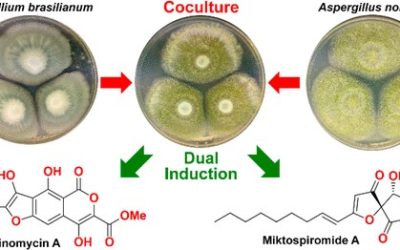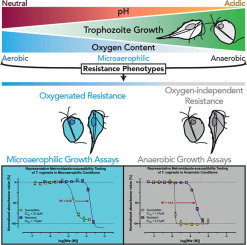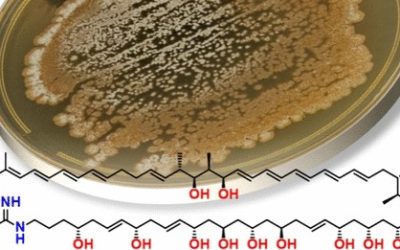Thomas J. Booth, John A. Kalaitzis b, Daniel Vuong c, Andrew Crombie c, Ernest Lacey *c, Andrew M. Piggott *b and Barrie Wilkinson *a
A – Department of Molecular Microbiology, John Innes Centre, Norwich Research Park, Norwich NR4 7UH, UK.
B – Department of Molecular Sciences, Macquarie University, NSW 2109, Australia.
C – Microbial Screening Technologies, Smithfield, NSW 2164, Australia
DOI: 10.1039/D0SC01928C (Edge Article) Chem. Sci., 2020, 11, 8249-8255
Abstract:
Aberrant splicing of pre-mRNA is implicated in many human genetic disorders. Small molecules that target the spliceosome are important leads as therapeutics and research tools, and one compound of significant interest is the polyketide natural product pladienolide B. Here, we describe the reactivation of quiescent pladienolide B production in the domesticated lab strain Streptomyces platensis AS6200 by overexpression of the pathway-specific activator PldR. The resulting dysregulation of the biosynthetic genes led to the accumulation and isolation of five additional intermediate or shunt metabolites of pladienolide B biosynthesis, including three previously unreported congeners. These compounds likely comprise the entire pladienolide biosynthetic pathway and demonstrate the link between polyketide tailoring reactions and bioactivity, particularly the importance of the 18,19-epoxide. Each congener demonstrated specific inhibitory activity against mammalian cell lines, with successive modifications leading to increased activity (IC50: 8 mM to 5 μM).


